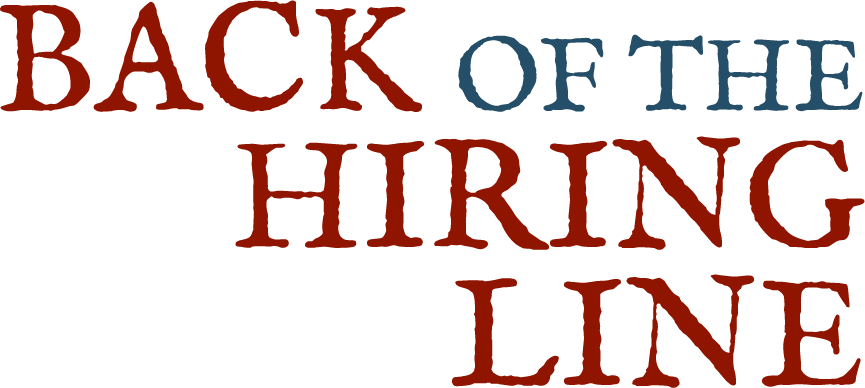IN THE NEWS:
...Black incomes grew after World War I, and the Black-white wage gap narrowed until around 1970. This remarkable achievement was mostly accomplished in the face of Jim Crow laws, and with minimal help from white people.
Following the Civil Rights Movement, we expected this gap to disappear. In fact, in the ensuing half century, the gap widened to 1950 levels. What happened?
A new book, “Back Of The Hiring Line" by Roy Beck, offers a meticulously documented perspective on this national puzzle. Along with copious employment data and multiple immigration and labor historians, Beck tells the story through the writings and speeches of prominent Black leaders such as Booker T. Washington, Frederick Douglass, W.E.B. DuBois, A. Phillip Randolph, and Black-owned newspapers, all of whom doggedly advocated for tight labor policies following the Civil War....
...With the surge in foreign workers, some employers tended to prefer immigrants who were willing to accept long hours and lower wages. Blacks were gypped in one industry after another where previously employed. They also missed out on entry level jobs in technology, losing the opportunity to develop those skills, networks and work experience that lead to upward mobility and generational wealth.
Blacks earn one in 10 computer science degrees nationwide, but account for only 2.6% of Silicon Valley tech workers. Seventy-one percent of tech workers in Silicon Valley today are foreign born. The employment/opportunity ladder that propelled many immigrants was denied to Blacks....
....Beck blames Congress, not immigrants, and he doesn’t claim that all problems facing Black communities are driven by immigration. Many Blacks have made substantial progress. But a disproportionate subset is stuck in generational poverty. Immigration numbers have played a largely unrecognized role in forcing vulnerable groups to compete against each other, and Blacks have been especially harmed.
The solution is simple: Congress should reduce the numbers. All workers, immigrant and native born, would benefit from tighter labor markets and higher wages.
Read the full transcript here:
https://www.sunjournal.com/2022/03/06/jonette-christian-immigration-and-americas-racial-reckoning/
Share on facebook
Facebook
Share on twitter
Twitter
Share on email
Email

